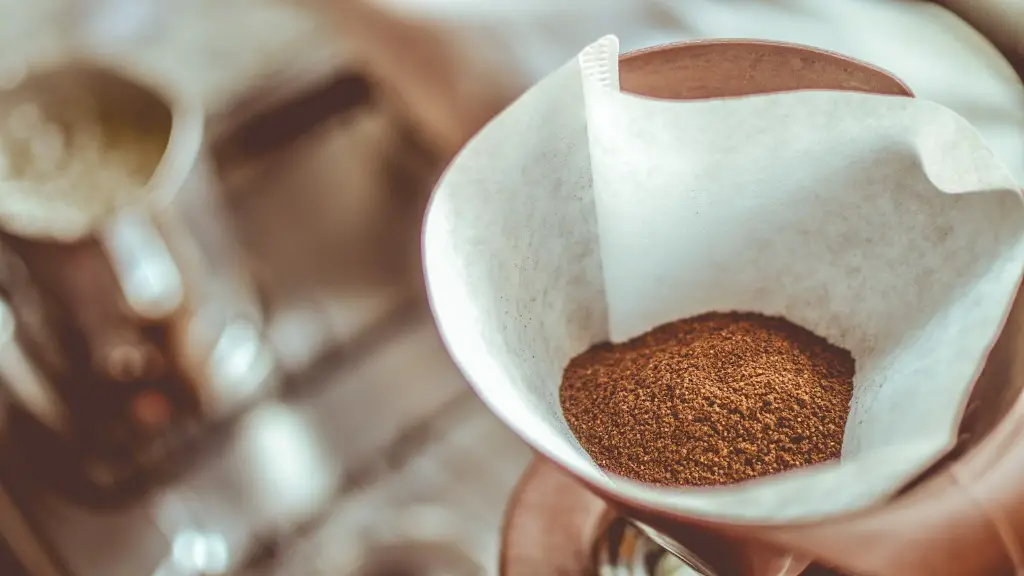Coffee is food for the soul – that’s for sure. This delicious beverage can be an enjoyable part of any meal, providing energy and a boost of focus. But, is it safe to drink coffee after eating?
Coffee can be consumed in sizes, types, and flavors to suit virtually any coffee lover. But, it is important to consider the potential health risks that come with excessive coffee consumption. According to one study, coffee is not as harmful as some people think, and can be consumed in moderation, with few potential side effects.
When it comes to the actual question of drinking coffee after eating, experts recommend avoiding it shortly after meals. While there are not many studies that have examined the topic, the few that have all agree the same: drinking coffee shortly after eating can affect digestion, causing indigestion and heartburn. In addition, coffee can affect the absorption of certain vitamins and minerals from food, and can also interfere with the body’s natural detoxification process. As a result, drinking coffee shortly after meals is not recommended.
That being said, if you need a cup of coffee after a meal, then it is best to wait for about an hour or two before having it. This should give your body enough time to properly digest the food and start the detoxification process. However, it is important to remember to not overdo it on the caffeine, as too much can lead to feelings of anxiety and restlessness.
When it comes to the question of drinking coffee after eating, the answer is generally yes but with caution. In order to optimize the health benefits of coffee it is best to drink it in moderation and not too closely to meals. Coffee can be an enjoyable and energizing part of any meal, just make sure to wait at least an hour or two before enjoying it.
Benefits of Drinking Coffee
Frequent coffee drinking has been linked with a range of health benefits. When consumed in moderation, coffee can provide a cleaner more productive energy source than many energy drinks. Coffee increases focus and mental clarity, helping to stimulate creative thought and promote productivity. Additionally, studies have also shown that coffee can improve physical performance, reduce the risk of some chronic diseases, and provide some antioxidants for the body.
How Much Coffee Is Recommended?
The recommended intake of coffee is no more than 400 mg of caffeine per day, which is equivalent to four cups of coffee. When following the recommended guidelines, coffee drinkers can get the benefit of a burst of energy while avoiding potential health risks. Even if exceeding the recommended amount of coffee, it is important to steer clear of drinking coffee immediately after meals, as this can lead to indigestion.
Caffeine and Health Risks
Caffeine is a powerful stimulant and can increase heart rate, blood pressure, and cause sleeplessness or restlessness. High caffeine concentrations in the body can also interfere with digestion, as well as the absorption of essential nutrients from food. Both long and short term adverse health conditions can arise from caffeine overload. Therefore, caffeine should be consumed in moderation and in accordance with the recommended frequency and amounts.
Alternative Beverages After Eating
In place of coffee after meals there are many alternatives that can provide a healthier option. Herbal teas are an excellent choice as they offer an abundance of health benefits. Green tea is a great way to get an antioxidant boost and support metabolic health, while chamomile tea can reduce stress and induce calm. Turmeric tea has anti-inflammatory effects, while peppermint tea aids digestion and helps to reduce bloating and indigestion.
Conclusion
Overall, coffee can provide energy and mental focus for many, but it is important to be mindful of the potential effects it can have on the body. Moderation and timing are the key when it comes to coffee consumption, as overdoing it can lead to negative health consequences. As an alternative to coffee after meals, consider herbal teas which offer a range of positive health effects.


